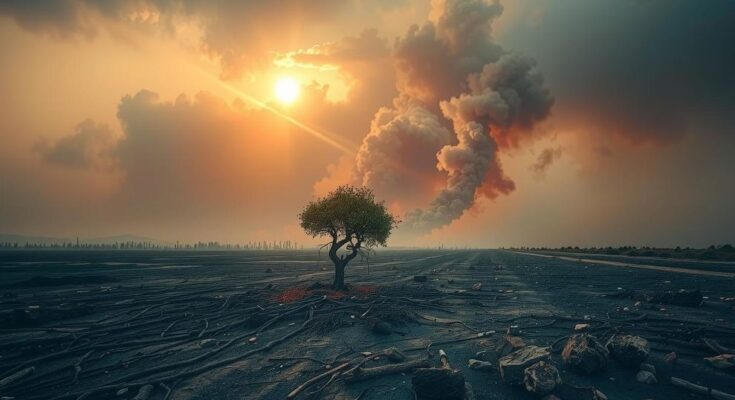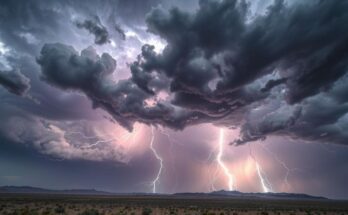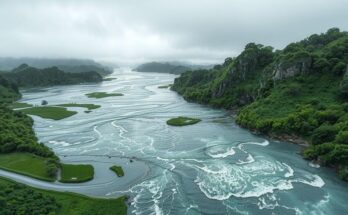Japan is battling its largest wildfire in 30 years, affecting 1,200 hectares in Ofunato, Iwate, leading to one death and over 1,000 evacuations. Approximately 1,700 firefighters are involved in the containment efforts. The cause of the fire is currently unknown, amidst worsening climatic conditions that have resulted in minimal rainfall this month.
Japan is currently facing its most significant wildfire in over 30 years, with flames consuming approximately 1,200 hectares of forest in Ofunato, located in the northern Iwate region, since the outbreak began on Wednesday. This incident has led to one confirmed casualty and the evacuation of over 1,000 residents, as reported by the Fire and Disaster Management Agency.
The spokesperson for the agency mentioned, “We are still examining the size of the affected area, but it is the biggest since the 1992 wildfire” in Kushiro, Hokkaido. That wildfire historically burned 1,030 hectares, marking the previous record. Approximately 1,700 firefighters have been mobilized nationwide to combat the situation, emphasizing the urgency of the crisis.
Aerial footage aired by NHK showcased extensive white smoke engorging a mountainous area affected by the flames. As of Friday, local authorities identified one deceased individual who had suffered burns during the incident, and more than 80 buildings have sustained damages. The origin of this catastrophic blaze remains unconfirmed at this time.
In addition to the Ofunato wildfire, two other fires are reported to be active, one in Yamanashi and another in a separate area of Iwate. In 2023 alone, Japan experienced approximately 1,300 wildfires, predominantly in the February to April timeframe when conditions are notably dry and windy. Although the overall number of wildfires has decreased since the 1970s, this recent event underscores ongoing environmental challenges.
Ofunato has recorded merely 2.5 millimeters of rainfall this month, suggestive of a forthcoming record low, significantly lower than the historic February minimum of 4.4 millimeters in 1967. Moreover, the previous year was the hottest on record in Japan, highlighting the adverse impact of climate change spurred by increasing greenhouse gas emissions.
In summary, Japan is confronting a severe wildfire crisis, marking its largest event in decades. The devastation has resulted in fatalities and significant property damage, necessitating a widespread mobilization of firefighting resources. The low rainfall and high temperatures reflect broader environmental trends linked to climate change, raising concerns about future wildfire occurrences in the region.
Original Source: www.japantimes.co.jp




